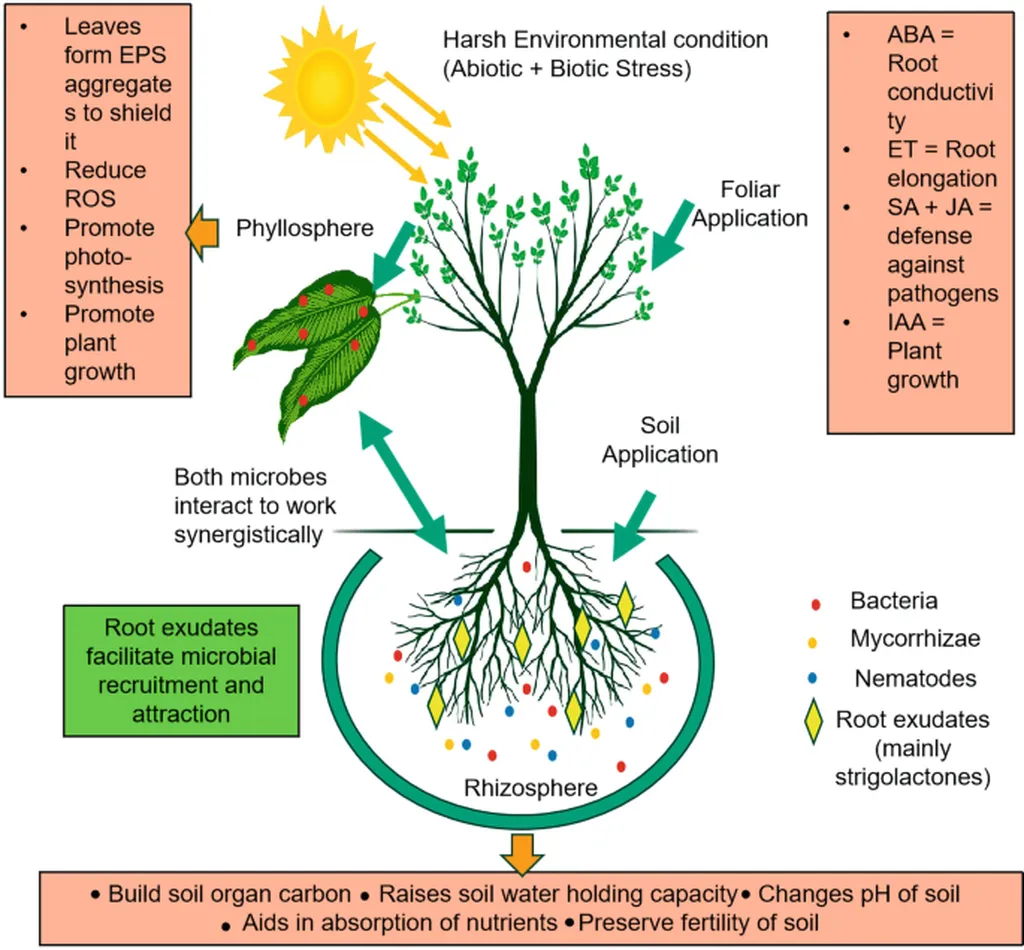In a groundbreaking development for plant science and agriculture, researchers have unveiled a unified analytical approach to profile phytohormones across diverse plant matrices. This innovative method, detailed in a study led by Muhammad K. Hakeem from the Department of Chemistry at the United Arab Emirates University, promises to revolutionize our understanding of plant physiology and open new avenues for sustainable agriculture and crop improvement.
Phytohormones, the chemical messengers that regulate plant growth, development, and stress responses, have long been a focus of scientific inquiry. However, profiling these hormones across different plant species and tissues has been a challenging endeavor. The study, published in *Frontiers in Plant Science* (translated to English as “Frontiers in Plant Science”), introduces a standardized LC-MS/MS (liquid chromatography-mass spectrometry) platform that can quantify key phytohormones, including abscisic acid (ABA), salicylic acid (SA), gibberellic acid (GA), and indole-3-acetic acid (IAA), with remarkable sensitivity and reproducibility.
“Our goal was to develop a robust, adaptable method that could provide consistent results across various plant matrices,” Hakeem explained. “By tailoring the extraction procedures to each matrix while maintaining consistent chromatographic and mass spectrometric conditions, we achieved a level of precision and reliability that was previously unattainable.”
The research team applied this method to five plant species of significant agricultural and medicinal value, revealing distinct phytohormonal profiles that reflect species-specific adaptations to environmental conditions. For instance, cardamom, known for its resilience in arid climates, exhibited high levels of SA and ABA, hormones associated with stress responses. In contrast, aloe vera, renowned for its drought tolerance, showed lower overall phytohormone levels, highlighting the complex interplay between genetics and environmental factors.
“This study not only advances our fundamental understanding of plant physiology but also has practical implications for agriculture,” Hakeem noted. “By identifying the hormonal profiles of different plant species, we can develop targeted strategies to enhance crop resilience, improve agricultural practices, and even create functional foods and nutraceuticals with enhanced health benefits.”
The commercial impacts of this research are substantial. In the energy sector, for example, understanding the hormonal regulation of bioenergy crops could lead to the development of more efficient and sustainable feedstocks for biofuel production. Additionally, the ability to profile phytohormones across diverse plant matrices could facilitate the discovery of novel plant-based compounds with applications in pharmaceuticals, cosmetics, and other industries.
As the global demand for sustainable and resilient crops continues to grow, the insights gained from this research could shape the future of agriculture. By providing a unified analytical approach to phytohormone profiling, this study paves the way for innovative solutions to some of the most pressing challenges in plant science and beyond.
“Our findings contribute to the broader understanding of plant physiology and offer practical applications in sustainable agriculture, particularly in regions with significant agricultural and medicinal crop production,” Hakeem concluded. “This unified LC-MS/MS platform offers a comprehensive approach to understanding phytohormone distribution and dynamics, with implications for improving agricultural practices, crop resilience, and the development of functional foods and nutraceuticals.”
With its potential to transform agricultural practices and drive innovation in various industries, this research marks a significant step forward in the field of plant science, offering a glimpse into a future where science and technology converge to create a more sustainable and resilient world.

